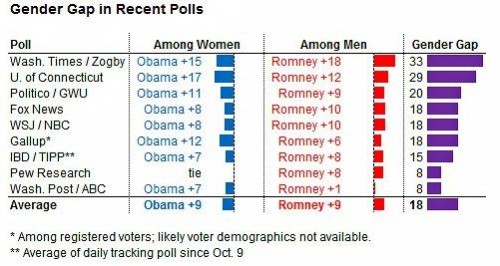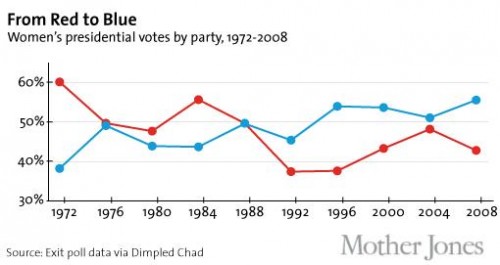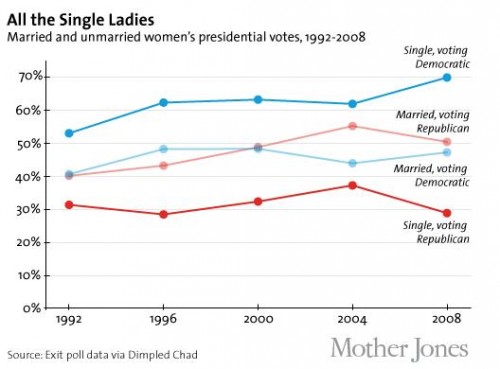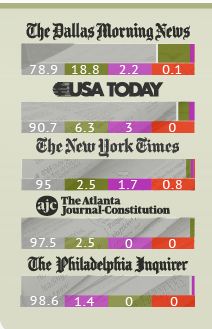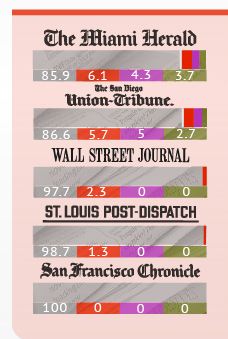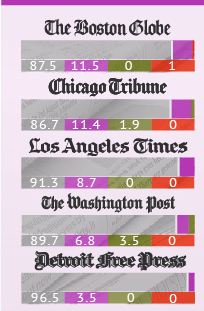Nate Silver, the statistics guru behind FiveThirtyEight, is predicting that the gender gap in tomorrow’s election will be “near historic highs.” According to Silver’s averaging of recent poll data, Obama has a 9-point lead among women, Romney has the same size lead among men.
Women haven’t always leaned Democratic. The trend started in the 1990s, as data at Mother Jones reveals:
Single women are especially likely to vote Democratic. Seventy percent voted for Obama in 2008:
A concern for reproductive rights, especially in light of recent Republican comments, are likely a big driver of women’s retreat from the political right. Their concerns very well may swing the election. In a poll of swing states, Gallup found that abortion topped the list of concerns for women; it didn’t make men’s top five:
It will be interesting to see how long the Republicans will hold onto positions unfriendly to women’s reproductive options.
Lisa Wade, PhD is an Associate Professor at Tulane University. She is the author of American Hookup, a book about college sexual culture; a textbook about gender; and a forthcoming introductory text: Terrible Magnificent Sociology. You can follow her on Twitter and Instagram.

